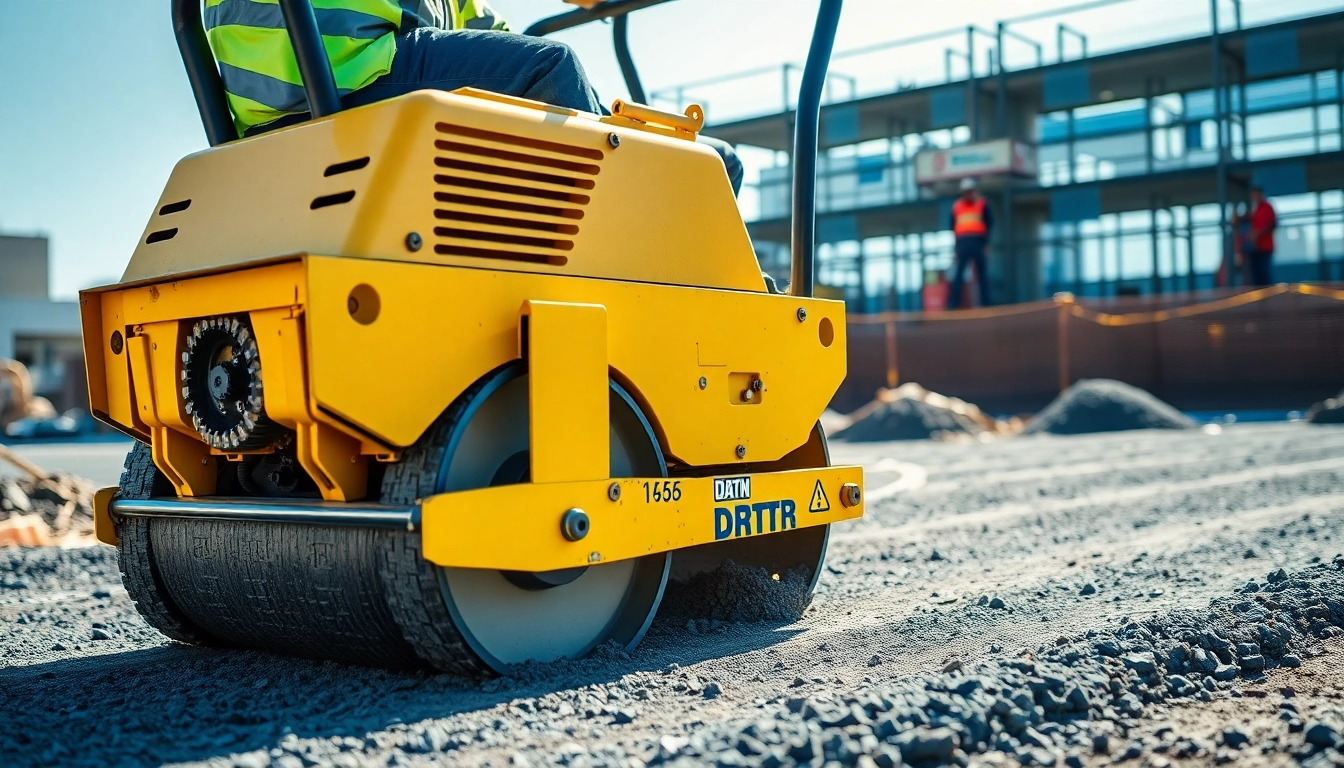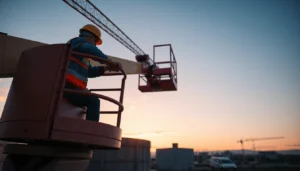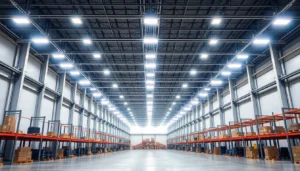Comprehensive Guide to Compactors Rental: Choosing, Using, and Maximizing Efficiency
In the modern construction and landscaping industries, efficient soil and material compaction are foundational to achieving durable, stable, and safe structures. Whether you’re undertaking a small DIY project or managing large-scale construction operations, selecting the right compactor and understanding its effective use are crucial. For many professionals and homeowners, compactors rental offers an affordable and flexible solution to access high-quality equipment without the hefty investments associated with purchasing. This comprehensive guide aims to demystify the various types of compactors available for rent, outline the selection process based on project needs, detail step-by-step rental procedures, explore the benefits of hiring versus buying, and provide maintenance tips for long-term success.
Understanding the Different Types of Compactors for Rent
Vibrating Plate Compactors for Site Preparation
Vibrating plate compactors, often called wacker plates, are essential tools for preparing hard ground surfaces. These machines feature a flat, heavy steel plate that vibrates rapidly to compact soil, gravel, asphalt, and other granular materials. They are especially effective on projects requiring the creation of a solid, level base prior to laying concrete or pavers. Typically lightweight and portable, vibrating plate compactors are ideal for smaller to medium-sized areas and are extensively used in landscaping, driveway construction, and trench work.
In the UK, reputable rental providers like Jewson offer a range of vibrating wacker plates suitable for various applications. These machines come with features such as adjustable vibration intensity, ergonomic handles, and compact designs that facilitate maneuverability in tight spaces. Renting such equipment allows DIY enthusiasts and contractors to perform precise compaction with minimal upfront investment.
Plate Compactors for Soil and Gravel
Plate compactors tailored for soil and gravel are more robust and powerful than their smaller counterparts. They often feature larger plates and higher vibration frequencies, making them suitable for compacting deeper or more resistant materials. These machines are indispensable in preparing the ground for foundations, backfilling trenches, and compacting subgrades in roadworks. Their rugged design ensures durability and consistent performance under demanding conditions.
For example, Brandon Hire Station provides a range of such equipment, including petrol-powered and diesel models, that can accommodate different project scales. The choice between petrol and diesel models often depends on the work environment, fuel costs, and operational preferences.
Heavy-Duty Compactors for Large-Scale Projects
Large construction projects demand heavy-duty compaction machinery capable of handling extensive areas and tougher materials. These include vibratory rollers, tandem rollers, and ride-on compactors that deliver high amplitude vibrations over large surfaces. They are used in highway construction, airport runways, and massive earthworks to achieve compaction levels meeting regulatory standards.
Sunbelt Rentals and other providers offer heavy-duty equipment such as single drum rollers and large-scale vibratory rollers. These machines are operated by trained professionals due to their size and power but can significantly accelerate project timelines and improve compaction quality.
Choosing the Right Compactor Rental for Your Project Needs
Assessing Soil Type and Project Scale
The foundational step in selecting a suitable compactor involves understanding the soil or material type and the size of the area to be compacted. Different soils—clay, silt, sand, gravel, or mixed materials—respond variably to compaction efforts. For example, clay soils require specific vibration frequencies and pressure to achieve optimal density without causing instability.
Similarly, the project scale influences the type and capacity of the equipment needed. Small landscaping tasks may benefit from compact, lightweight vibrating plates, while large road projects necessitate large rollers and trench compactors. Accurate assessment ensures efficient use of rental equipment, avoids over- or under-specification, and optimizes costs.
Features to Consider: Power, Size, and Portability
When renting a compactor, key features to evaluate include:
- Power and Vibration Frequency: Higher power and vibration amplitudes facilitate faster compaction of resistant soils but may require operational expertise.
- Size and Weight: Portable units are suitable for small to medium tasks, whereas larger machines are necessary for extensive projects.
- Portability and Maneuverability: Compact machines ease operation in confined spaces—critical for landscaping and urban projects.
- Fuel Type: Petrol, diesel, or electric—each with cost, environmental, and operational considerations.
- Operator Comfort and Controls: Ergonomic handles, adjustable vibration settings, and safety features enhance productivity and safety.
Matching these features to your project requirements ensures equipment efficacy and safety.
Cost Efficiency and Rental Duration Options
Understanding the rental pricing structures and rental durations can substantially impact project budgets. Most providers offer hourly, daily, weekly, or long-term rentals with discounts for extended periods. Additionally, considering delivery, pickup, and operator services—if needed—affects overall costs.
For example, booking a compact plate compactor for a weekend project may cost as little as £30–£50, whereas larger equipment for a week or longer might involve negotiated rates. A detailed comparison of rental options aligned with project timelines ensures cost-effective resource planning.
Step-by-Step Guide to Renting a Compactor
Locating Reliable Rental Providers
The first step involves researching reputable rental companies known for quality equipment, transparency, and customer support. Popular choices include local tool hire shops, national chains like Brandon Hire Station, and online rental platforms such as Speedy Hire or Olympus Plant and Tool Hire.
Online reviews, certifications, and service testimonials are excellent indicators of reliability. Additionally, proximity plays a role; local providers can often deliver equipment faster and at lower costs.
Booking and Delivery Arrangements
Once a provider is selected, confirm equipment availability and rental terms. Most companies facilitate online booking or telephonic reservations, allowing you to specify dates, delivery needs, and any special requests.
Ensure clarity on delivery windows, setup requirements, and return policies. Where necessary, arrange for delivery to your site, especially for larger equipment that cannot be transported easily. Many providers offer flexible delivery and pickup services, often with same-day or next-day options.
Operational Tips for Safe and Effective Use
Using compactors safely involves proper setup and adherence to operational guidelines:
- Pre-Operation Inspection: Check for damage, fluid levels, and safety features before use.
- Proper Positioning: Always handle equipment with stable footing and ensure the area is clear of obstacles or personnel.
- Technique: Use slow, controlled passes overlapping for uniform compaction. Avoid excessive pressure that may damage the machine or soil.
- Safety Precautions: Wear appropriate PPE such as gloves, ear protection, and safety glasses. Never operate in wet or unsafe conditions.
- Post-Operation Maintenance: Clean equipment, inspect for damage, and report any issues to the rental company.
Continuous training and awareness are key to maximizing productivity while maintaining safety standards.
Benefits of Hiring a Professional Compactors Rental Service
Cost Savings Compared to Purchasing Equipment
While ownership might seem appealing, the total cost of buying, maintaining, storing, and insuring compactors often surpasses rental expenses for temporary needs. Renting allows access to the latest technology without capital outlay, freeing up resources for other project priorities.
Access to Latest Equipment and Maintenance Support
Rental companies regularly update their fleets with modern machinery, ensuring clients benefit from higher efficiency, improved safety features, and reduced downtime. Additionally, equipment maintenance, repairs, and troubleshooting are handled by the provider, reducing operational disruptions.
Expert Advice and Technical Assistance
Choosing the right compactor can be challenging without expert input. Rental providers often employ knowledgeable staff capable of advising on equipment selection, operation techniques, and troubleshooting. This guidance is invaluable, especially for complex projects or unfamiliar equipment.
Performance Metrics and Maintenance Tips for Long-Term Rental Success
Monitoring Equipment Efficiency
To ensure maximum effectiveness throughout the rental period, regularly monitor key parameters such as vibration amplitude, engine performance, and operational noise. Tracking these metrics can identify potential issues early, preventing costly downtime.
Utilize built-in diagnostic tools where available, and maintain clear communication with the rental provider for support.
Regular Maintenance and Safety Checks
Implement routine inspections before and after each use, focusing on fuel levels, lubrication, and wear-and-tear on moving parts. Clean equipment after each session to prevent dirt buildup and damage.
Adhere strictly to manufacturer guidelines for maintenance schedules and safety protocols to extend the equipment’s lifespan and ensure safe operation.
Maximizing Equipment Lifespan and Project Outcomes
Effective use and diligent maintenance combine to prolong machinery life, reduce replacement costs, and improve project results. Educate operators on proper technique and safety, and schedule regular inspections and servicing during extended rental periods.








